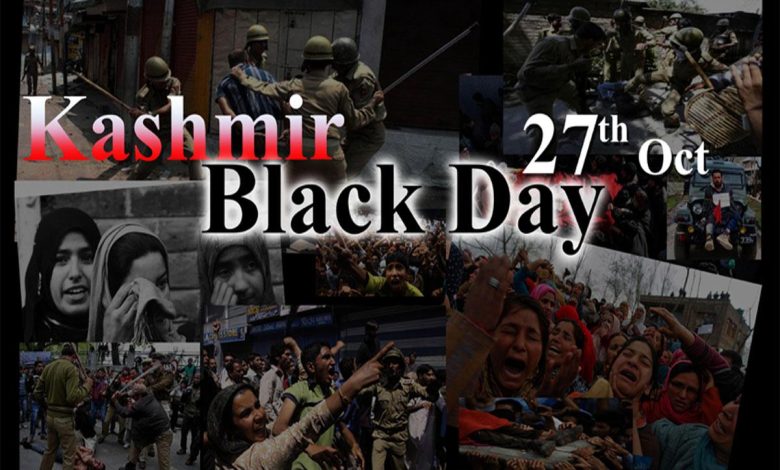
By Nighat Aamir
October 27 marks a solemn day etched in the annals of Kashmir’s history——a day that reminds us not only of the uphill struggle of Kashmiris but also of the grave injustices endured by them at the hands of the Indian authorities. In 1947, on this fateful day, India made an audacious move by forcibly taking control of Kashmir against the fervent wishes of its people and international norms. This controversial accession of Jammu and Kashmir to India laid the foundation for the ongoing Kashmir dispute. The instrument of accession, the document supposedly legitimizing this annexation, remains a subject of debate, casting a doubt on the legality of India’s claim.
The Jammu and Kashmir dispute is the unfinished agenda of self-determination in the South Asian Subcontinent, and it poses a significant challenge to the regional and global peace and security. It is marred by relentless terror and violence. It has endured the brunt of India’s military might, leading to a tragic loss of life and a disturbing plan to alter the region’s demographic composition through revocation of Article 370 and 35-A and thus, stripping Jammu and Kashmir of its special autonomy. This move further exacerbated the humanitarian crisis and led to strict curfews, restrictions, communications, blackouts, military killings and abductions. All these measures constitute a flagrant violation of the UN Charter, the relevant Security Council’s Resolutions and International Law including the 4th Geneva Convention.
The echoes of Kashmir’s tumultuous history continue to resonate through the valley. Despite promises of autonomy and self-determination, the rights of Kashmiris have been consistently eroded and their voices have gone unheard. As they navigate the present, their unwavering resolve keeps the flame of hope alive, for they believe in a future where their rights are respected. For the last seven decades, Kashmir has been the epicenter of bitter dispute in South Asia. Peace in South Asia is linked to the resolution of this dispute. International community, therefore, must play a proactive role obliging India to respect the rights of people of Kashmir and to work towards a peaceful and inclusive resolution of the conflict. The Security Council and the UN Secretary General must make concerted efforts, as empowered by the UN Charter, to promote a peaceful settlement of the Jammu and Kashmir dispute, according to the relevant UN security Council resolutions and wishes of the Kashmiri people.
Preventive measures to stop abuses in Indian Illegally Occupied Jammu and Kashmir, to promote global accountability is both a moral imperative and a collective human rights responsibility. Millions of Kashmiris have suffered for too long. To end their plight, they demand a peaceful resolution to the conflict. It is time to make peace a new normal.





